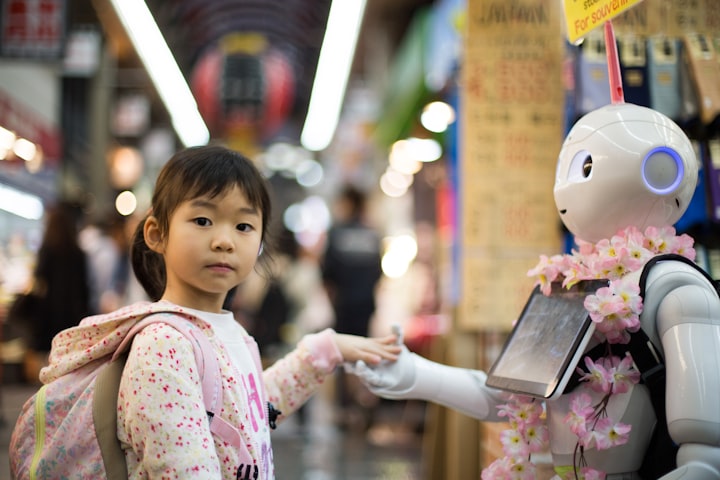AI and Human
The future of civilization

Artificial intelligence (AI) and humans have come a long way together. From the earliest days of computers, humans have been working to create machines that can think and learn like us. And today, we're closer than ever to achieving that goal.
One of the most exciting things about AI is its potential to augment human capabilities. By taking over repetitive, mundane tasks, AI can free up humans to focus on more creative and complex work. For example, AI can analyze large amounts of data quickly and accurately, making it a valuable tool for businesses and organizations.
However, as AI continues to evolve, it also raises important ethical questions. How will AI impact the job market? Will it lead to widespread unemployment? How can we ensure that AI is developed and used in a way that is fair and beneficial for all?
One thing is certain, AI will continue to play an increasingly important role in our lives. And as we move forward, it's important that we work together to ensure that the benefits of AI outweigh the risks.
One way to do this is by fostering collaboration between humans and AI. By working together, humans and AI can achieve more than either could alone. For example, humans can provide the creativity and empathy that AI lacks, while AI can provide the speed and accuracy that humans lack.
Another way is to ensure that AI is developed with human values in mind. This means that as we create AI systems, we must consider not just their technical capabilities, but also their impact on society. We must ensure that AI is developed in a way that promotes fairness, equality, and compassion.
Another important aspect to consider when discussing the relationship between AI and humans is the issue of transparency and explainability. As AI systems become more complex and autonomous, it can become increasingly difficult for humans to understand how they make decisions. This can be a problem when it comes to things like accountability, as it can be hard to determine who is responsible for an AI system's actions. To mitigate this, researchers and developers are working on methods to make AI systems more transparent and explainable, so that humans can better understand how they work and why they make certain decisions.
areas such as pattern recognition, natural language understanding, and decision-making. This raises concerns about the future of work and the role of humans in society. It is important to consider how we can ensure that these advancements in AI will not lead to widespread unemployment, and how we can create new opportunities for human workers in a world where AI is more prevalent.
Another important area to consider in the relationship between AI and humans is the issue of bias. AI systems are only as unbiased as the data they are trained on. If the data contains biases, the AI system will learn and replicate those biases. This can lead to unfair and unequal outcomes for certain groups of people. For example, an AI system trained on data that is biased against certain ethnic or gender groups may make decisions that discriminate against those groups. It's important to identify and address these biases in the data and the AI systems to ensure that they are fair and unbiased.
In summary, AI has the potential to greatly benefit humanity, but it's important that we consider the ethical, social, and economic implications of this technology as we move forward. By fostering collaboration between humans and AI, developing AI with human values in mind, and promoting transparency and explainability, we can ensure that the future of AI is one that is beneficial for all.





Comments
There are no comments for this story
Be the first to respond and start the conversation.